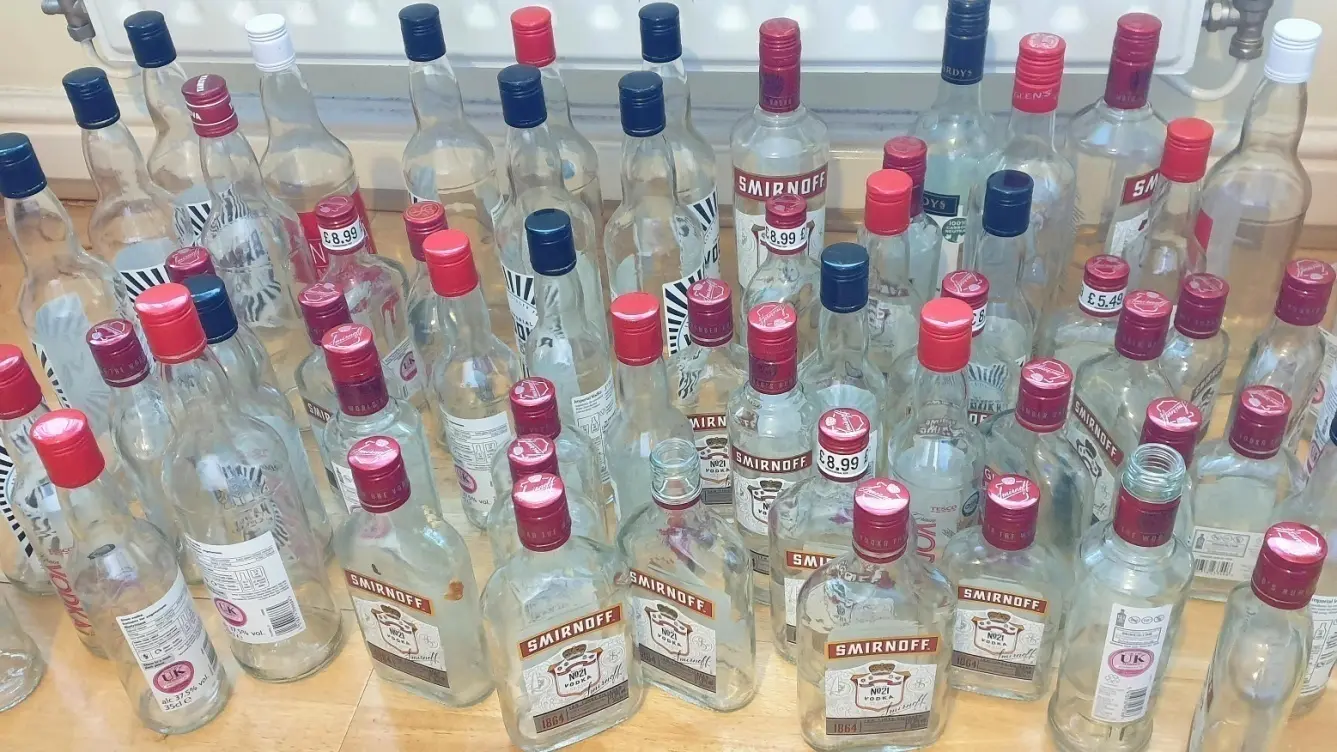Alcoholism #
The following two letters were obviously written largely through frustration. However, perhaps they present arguments which may help someone somewhere.
DEAR HABITUAL ALCOHOL USER #
The stats don’t lie and neither does the science. Equally, the toxic nature of alcohol is not hidden. Yet, its presence pervades our lives almost by stealth.
What if you swapped the name alcohol for that of another similarly hard drug (see Section 4.2 for a list)? What if you used this drug in exactly the same manner as you use alcohol?
How does this sound to you? “I like a nice hit of heroin with my dinner.” “A bit of meth after work helps me to unwind.” “I’m just popping out to the pub for some crack cocaine with the boys.”
I suspect that you would never dream of binging on heroin at the weekend, or snorting meth after work, or socializing in the pub over some crack. Why not?
Like alcohol, they all create euphoric pleasure, a high, and a come-down, which are all variable with dose. They all have broadly similar profiles in terms of harm and addiction.
What is the difference, therefore, other than that you have been conditioned and engineered by society, by the mainstream media, and by morally challenged politicians? There is no difference.
So why don’t you treat alcohol in the same way as other drugs, and analyse it on the same metrics? Why don’t you measure disadvantages versus advantages, risk versus benefit, addiction potential, and so forth? Why don’t you kick the cultural programming, use your intelligence to frame your own opinion, and take rational decisions based upon confirmed facts? Why is alcohol given a free pass?
Alcohol numbs your mind. It dumbs you down and inflates your ego. It blinds you to bigger pictures and to the wider perspectives. Indeed, one of those pictures pertains to alcohol itself and its real place in the drugscape.
Most of us have friends or family who are plagued by alcoholism. I certainly do. It is agonizing to watch the slow destruction of someone you love. If they read these words they couldn’t argue with them, but they are likely to be far too afflicted to act upon them. You are hopefully not.
Think about the role that alcohol plays in your life, how a lifetime of habitual use will affect your mind, your body, and those around you, and consider if that picture is a positive one.
If it isn’t, do something about it.
DEAR ALCOHOLIC #
By now you don’t need me, or anyone else, to tell you that alcohol is a hard drug. In your moments of clarity you can see through the haze what it has done to you, to your life, and to all those who care for you. You can see the trail of anguish and destruction, which is so painful that you drink again to escape those thoughts.
That drink makes it feel better doesn’t it? The relief! It’s fleeting. All too quickly it feels worse again, as the brutal reality catches you. You repeat the cycle. It will always catch you.
You know where this is leading, but you can’t face it. Nor can you evade the nagging feeling that you are not living a life at all. You are enduring a slow death.
You have tried to stop. You have tried really hard. You have gone cold turkey. You have even used support medication, like diazepam, which gave some relief, for a while, but not enough. Only alcohol really blunts the torment; the dread in the pit of your stomach and the terrible unremitting pain that always seems to fill the void.
The same story is familiar across users of other drugs too; other hard drugs. However, many people do beat them. People like you beat them. People like you beat alcohol.
I’m not a counsellor, and I’m not a professional, but I have seen souls shattered and lives lost. I can only offer my opinion, but it is one forged through pain and sorrow.
Try again to stop, but this time, take some truths with you on the journey.
When you stop, promise yourself that it will be for ever. You can’t just switch from alcoholic to occasional social drinker. You have to make fundamental changes to your perspective and consequently to your life.
You have to learn to see alcohol differently, and not see it as a source of pleasure.
For you, it is a source of misery. It is a brief euphoria which sinks agonizingly into that fearful abyss. This is what it is, and what it will always be. Any other perspective is an illusion. You know this already, so let it go. Let it go for good.
There is life without it. Time will help you to see that. But you must invest that time, little by little, day by day. You must give time a chance.
Your head will eventually clear and you will slowly learn to find pleasure in the little things again. You will learn and you will grow and you will redefine yourself, and somewhere downstream you will find joy again; you will find life again.
With your new perspective you will also stop envying those around you, who are drinking their drug, and see that they are also dulling their senses, damaging their bodies, blunting their minds. You will eventually be able to look into their cloudy world without the fog, and see beyond the initial lift of the intoxication, at the full picture. You won’t want to go back.
To get there, you will need support. You are well aware that there are a variety of support groups, like Alcoholics Anonymous. Seek them out and approach them and find the right one for yourself. Use them. Try to find people you can scream help to if you think you might crack. Build bridges with real people. Connect.
Whatever family or friends you have left, ask them for help too. Tell them that you are trying to get clean. Don’t hide it, or you will continue to be placed in difficult positions. Be as open as you can be. Be honest.
See your GP or any medical practitioner you can possibly gain access to. If you have the opportunity to get into rehab, grab it with both hands. Accept professional help.
Don’t ever use a setback in life or piece of bad luck as an excuse to revert. Your addiction will always look for excuses. There are none. Use this as a mantra: *I will do it… there are no excuses to have a drink…. I am not drinking today.
Set yourself targets: 1 day; 2 days; this weekend; a week; 2 weeks; to the start of the month; a month; 50 days; and so forth. Look forward to the next target and focus upon it.
It’s a long slow path, but you can really make it through the tunnel, if you want to. But you have to decide to do it, and to throw yourself 100% into it. You have to choose life, and mean it.
Life! Right now your life is ebbing away in a drunken haze. You are losing it, day by day.
Yet there is so much more.
If you can just force yourself to reach out and go for it, you can and will find happiness again. It’s at the end of that tunnel, waiting for you.
Eventually the pain will stop, for you, and all those who matter to you. It will: I absolutely 100% guarantee it.
So try again… choose life…. please.
OR ANOTHER ROUTE #
Would a radical change of circumstance or an entirely different life help you? Would taking yourself away from all your existing issues, or throwing yourself into some sort of project, help? What about a radical or alternative approach to changing or widening your perspective? These are all methods of helping you to fundamentally change your outlook, and they do work for many people.
Try to think clearly about how to proceed from here. Above all, take the first step, and take it urgently.
A TOXIC, HARD, ADDICTIVE DRUG #
Even with intensive family support, the speed at which a chronic alcoholic can descend into squalor is frightening:

Vodka is frequently the alcoholic’s drink of choice, and this collection of empties was retrieved from the above scene:

Never fall into the trap of allowing the cultural acceptance of alcohol to camouflage its real status as one of the most toxic, hard, addictive drugs.